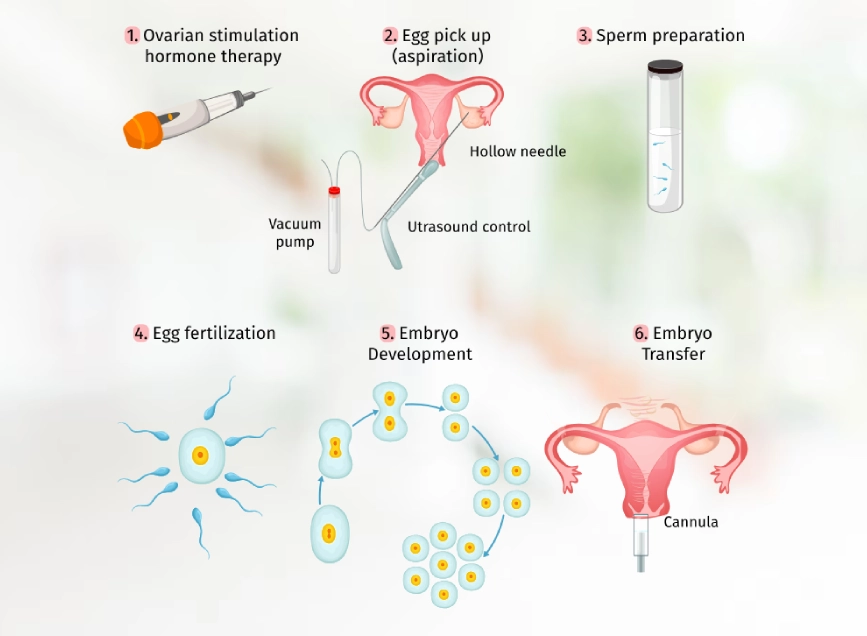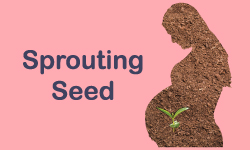
-
Posted By admin
-
-
Comments 0
Donating eggs is a selfless and compassionate act that enables individuals and couples struggling with infertility to fulfill their dreams of parenthood. The process of donating eggs involves several important steps, from initial screening to the egg recovery procedure and each phase is designed to ensure both the donor’s and recipient’s health and safety. If you’re considering donating eggs, understanding each stage of the egg donation process will help you make an informed decision.
Step 1: Initial Decision to Become an Egg Donor
The first and most important step in the process of donating an egg is deciding whether to proceed with egg donation. The decision is deeply personal and may be driven by the desire to help others create a family or the financial compensation offered for the donor’s time and effort. It is important to consider the emotional and physical implications of the process before committing.
Donors must meet certain criteria to ensure they are eligible. For example, they should typically be between 21 and 35 years old, physically healthy and free from medical or psychological conditions that could impact the donation process. Additionally, donors should understand the physical demands, such as hormone treatments and the egg recovery procedure.
Step 2: Application and Screening Process
Once a female egg donor has decided to donate her eggs, she must undergo a thorough donating eggs process. This phase is critical to ensure the donor is physically and emotionally prepared for the procedure. It involves the following evaluations:
Medical Screening
A full physical exam, blood tests and ultrasounds are conducted to assess the donor’s overall health, fertility and any potential risk factors. The medical screening aims to determine if the donor’s eggs are viable for donation and if she is in good health to undergo hormone treatments and the egg retrieval process.
Psychological Screening
Emotional readiness is an important part of the egg donation procedure. Donors participate in psychological assessments to ensure they understand the emotional aspects of the process and are comfortable with the potential outcomes, such as not having parental rights to the child born from the donation.
Genetic Screening
Genetic testing is done to screen for inherited diseases or conditions that may be passed on to the recipient or child. This step ensures that the eggs are safe for donation and reduces the risk of passing along genetic disorders.
Step 3: Hormonal Stimulation
Once a donor passes the screening process, the next step in the donating eggs process is hormonal stimulation. The goal of hormonal treatment is to encourage the female reproductive system to produce multiple eggs during one cycle, rather than the single egg produced in a natural menstrual cycle. The donor is typically prescribed injectable hormones such as follicle-stimulating hormone (FSH) and luteinizing hormone (LH) to stimulate egg production.
During this phase, the donor undergoes regular visits to the clinic for ultrasounds and blood tests to monitor the response to the medication. These tests ensure that the eggs are developing properly and that the dosage of hormones is adjusted as needed. This stage typically lasts 10-14 days, and donors may experience mild side effects like bloating, mood swings or breast tenderness.
Step 4: Egg Retrieval Procedure
When the eggs are sufficiently mature, the egg retrieval process takes place. This procedure is minimally invasive and performed under mild sedation to ensure the donor’s comfort. A doctor uses an ultrasound-guided needle to aspirate the eggs from the female reproductive system. The procedure typically lasts around 20-30 minutes and is performed in an outpatient setting.
After the retrieval, the donor may experience mild cramping, bloating or spotting, which is common and typically resolves within a few days. The donor is monitored for a short period of post egg donation procedure and then sent home to rest. Most donors can return to their normal activities within 24 to 48 hours, though they are advised to avoid strenuous activities for a short time.
Step 5: Post Egg Donation Procedure Recovery
After the egg retrieval, the donor is closely monitored for any potential complications. Most women experience only mild discomfort, but in rare cases, ovarian hyperstimulation syndrome (OHSS) can occur, where the ovaries become swollen and painful. If this happens, the donor will be provided with medical treatment to manage the condition.
The recovery process is usually quick, and most donors resume their regular activities after a couple of days. However, they are advised to refrain from vigorous physical activity for a short period to allow their body to heal. The eggs are then fertilized by sperm in the lab, and embryos are transferred to the recipient’s uterus in a separate IVF process.
Step 6: Legal and Ethical Considerations
Throughout the donating eggs process, there are important legal and ethical considerations that must be addressed. Donors are typically required to sign legal contracts that outline their rights, responsibilities and any future involvement with the child born from the donation. These contracts also specify the donor’s anonymity (or lack thereof), parental rights and any other legal aspects of the donation.
Some egg donation programs provide anonymity, while others may allow the donor and recipient to have open communication, depending on the agreement. It is essential for the donor to fully understand and agree to these terms before beginning the egg donation process.
Final Thought...
The donating eggs process is a detailed and intricate journey that can significantly impact the lives of both the donor and the recipient. It involves a series of well-organized steps, including screening, hormone stimulation, egg retrieval and recovery, all while ensuring the safety and well-being of the donor. While the process can be physically demanding, many donors find it deeply fulfilling, knowing they are helping someone achieve the joy of parenthood.
If you’re considering donating your eggs, it’s important to understand the process thoroughly, from the medical procedures to the legal and emotional implications. By doing so, you can make an informed decision about this extraordinary and life-changing gift.






